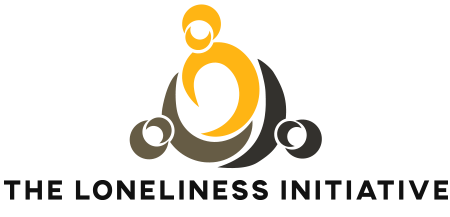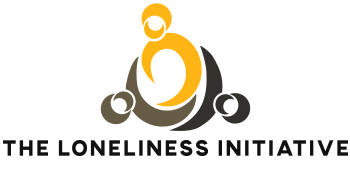The Loneliness Initiative
THE LONELINESS INITIATIVE
Creating interaction and human connection opportunities for those experiencing loneliness and social isolation.
We graduate from college and take a job in a new city; a romantic relationship ends; friends move or enter a different phase of life – there are multiple ways we can find ourselves socially isolated. The Loneliness Initiative was created not because loneliness happens, that is part of the human condition, but because of the difficulty of extricating oneself. In years past, community institutions, Churches, clubs and groups of many forms provided opportunities to socialize, but are now far less active or closed completely. As a society we are less trusting of strangers, spend less time with neighbors and have fewer friends. These societal changes, the causes of which are broad and complex, create a daunting situation for those who are lonely, leading in far too many cases to a spiral into depression and hopelessness. The Loneliness Initiative was founded to create opportunities for conversation, to create spaces that encourage and nurture connection, and to help those suffering from isolation find a way to a healthier social setting.
Impact of Loneliness
Loneliness is not just a mental health issue, there are very real physical health effects. According to the Surgeon General’s report, chronic loneliness has the equivalent impact of smoking 15 cigarettes a day and reduces life expectancy by 10 years.
“Loneliness is far more than just a bad feeling—it harms both individual and societal health. It is associated with a greater risk of cardiovascular disease, dementia, stroke, depression, anxiety, and premature death. The mortality impact of being socially disconnected is similar to that caused by smoking up to 15 cigarettes a day, and even greater than that associated with obesity and physical inactivity. And the harmful consequences of a society that lacks social connection can be felt in our schools, workplaces, and civic organizations, where performance, productivity, and engagement are diminished.”
Bawden, A. (2023, November 10). People never visited by loved ones more likely to die earlier, study finds. The Guardian. https://www.theguardian.com/society/2023/nov/10/people-never-visited-by-loved-ones-more-likely-to-die-earlier-study-finds
Our Initiatives
How Can I Help?
If I’m Lonely?
The feeling of loneliness itself, and the energy required to constantly reach out to others, desperately trying to establish a friendship or connection, while getting nothing in return – its debilitating. The result is often depression and a deepening sense of isolation and hopelessness. Yet effort is your power. Effort. Stay positive, remind yourself of your own self worth. Be proud of simply showing up and trying. Take care of yourself and surroundings. Keep your home clean, cook a good meal, exercise. By taking care of yourself, you are reminded of your own self worth and dignity – providing the energy to show up again tomorrow. Not all people are destined to be friends. Many are living parallel, but separate, lives. Others are content in their family or circle of friends, and are not aware of their ability to help. But keep showing up anyway. Steadily your efforts will pay off. You will find connection and a sense of belonging.
Focusing on an interest, a hobby, and finding groups that participate in those interests can be an ideal path to establishing friendships. This is also an ideal time to try something new. Visit a Maker’s Space or a gym. Search Meet-Up for groups in your area. Use the opportunity to broaden your world.
Who else is working in this space?
Donate and Merchandise
The ability to donate and purchase merchandise will be available soon.


